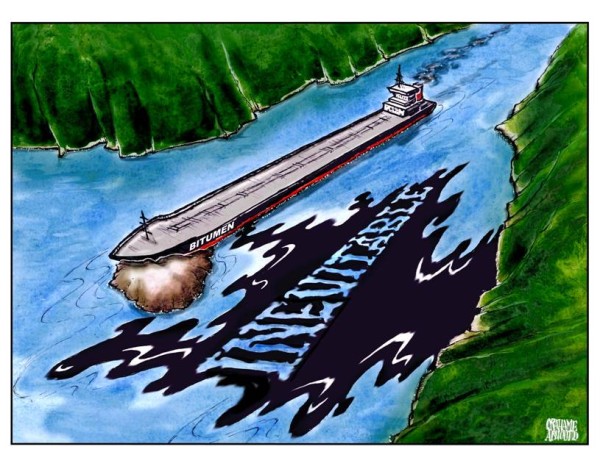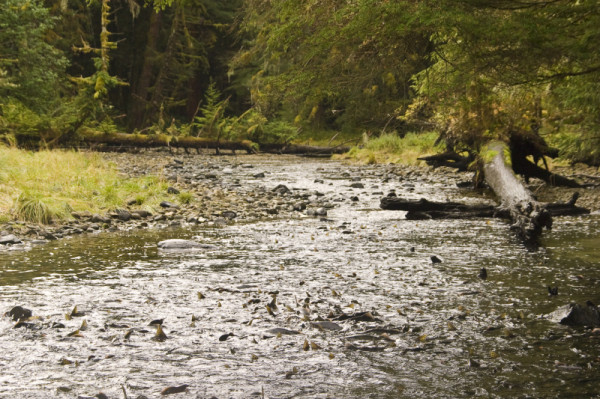Making Oil Tankers Safer is Common Sense. Putting them in the Great Bear Sea is not.
This week the federal ministers of Transport and Natural Resources were in Vancouver to release the Tanker Expert Safety Panel report about what Canada needs to do to prepare to respond to marine oil spills.
The report couldn’t have come at a more sensitive or strategic moment for the federal government, as a major decision looms on the future of the Northern Gateway Pipeline. As you’ve read, the proposed project would bring as many as 220 massive oil tankers into the isolated, treacherous, and ecologically important waters of the Great Bear Sea.

The risk of a significant oil spill remains one of the biggest criticisms of the project—both from the public and the government of B.C. In fact, a recent report commissioned by the province shows just how ill-prepared we are to deal with an oil spill in Great Bear waters. Only 4 per cent of the oil from a 10,000-tonne spill would be recovered in a 5 day period. No effective response would be possible. The oil could foul hundreds of kilometres of coastline.
This provincial report and the newly-released federal government report both observe that Canada’s marine safety standards are inadequate to deal with current risks, much less future vessel traffic. An upgrade and overhaul is overdue.
As I listened to the federal ministers’ speeches and responses to reporters, the term ‘world class’ was used repeatedly to reassure that Canada will have an oil spill preparedness and response regime in place to deal with all eventualities. Currently, however, “world-class response” means recovering a miniscule 15 per cent of oil spilled at sea. So even if we were to one day achieve world class preparedness and response capabilities, we would still be unable to cope with a major tanker spill.

Where there is vessel traffic, there will be spills; and where there might be spills there is the need to respond. Most will be small, but there is always the risk of a major marine accident that could lead to a big one. The facts are clear: the consequences of such accidents are unmanageable. In the context of the extraordinary, ecological treasure of the Great Bear Sea, this is unthinkable – which is why the risk is entirely unacceptable.
Coastal First Nations and WWF are asking the world and Canadians to show they care about the Great Bear region on the coast of British Columbia. Add Your Name.
